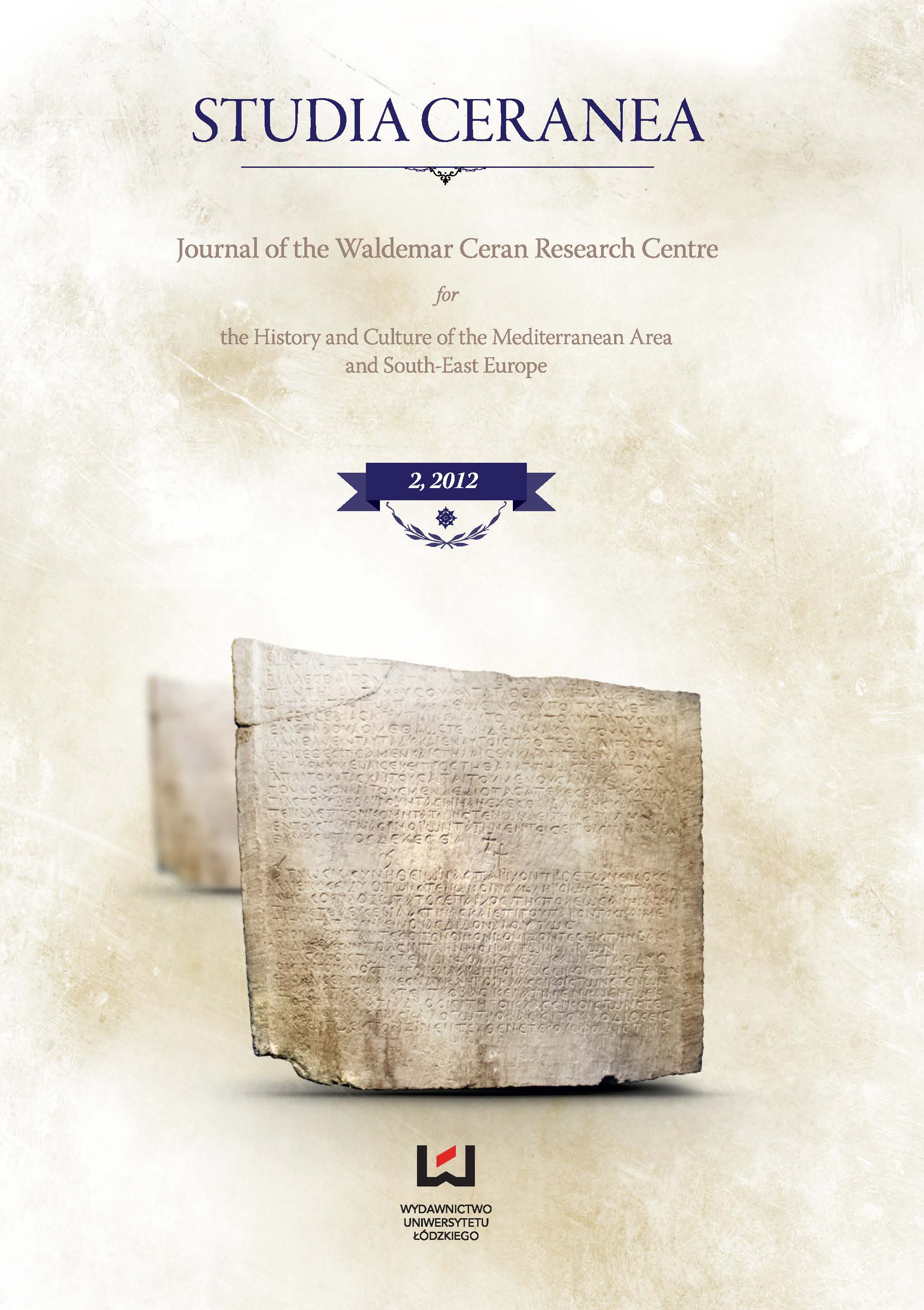"Peculatus" – Several Remarks on the Classification of the Offence of Embezzlement of Public Funds in Roman Law
DOI:
https://doi.org/10.18778/2084-140X.02.02Abstract
The offence of embezzlement of public funds – peculatus – is an interesting research subject due to the Roman legislator’s original approach to the issue of the classification of types of criminal offences (crimina). The paper aims to present Roman regulations concerning peculatus from the perspective of the methods of classifying its features as adopted by the compilers, taking into account both the normative contents of original laws (created by the original authors of these laws), as well as those added by later legislative factors: emperors, the senate and jurisprudence. The study of the Julian law on embezzlement of public funds may be conducted following the Justinian’s title Ad legem Iuliam peculatus et de sacrilegis et de residuis (Dig., 48, 13). Peculatus was the basic type of the offence of embezzlement of public funds. In the time of Augustus, two separate types of the offence isolated from peculatus, which were sacrilegium (probably within one law - lex Iulia peculatus) and embezzlement of a specific kind of money, i.e. pecunia residua (probably within a separate law - lex Iulia de residuis). Despite being quite precisely defined by the law, the type of the offence of embezzlement of public funds must have raised doubts when it came to applying the law, in cases where the act the offender was charged with came close to theft (crimen furti) or forgery (crimen falsi).
Downloads
References
Gnoli F., Ricerche sul crimen peculatus, Milano 1979.
Google Scholar
Gnoli F., Sulla repressione penale della ritenzione di ‘pecunia residua’ nella ‘lex Iulia peculatus’, "Rendiconti dell’Istituto lombardo, Classe di lettere e scienze morali e storiche" 107, 1973, p. 437–472.
Google Scholar
Gnoli F., Cic., Nat. deor. 3,74 e l’origine della „quaestio perpetua peculatus”, "Rendiconti dell’Istituto lombardo, Classe di lettere e scienze morali e storiche" 109, 1975, p. 331–341.
Google Scholar
Ziegler H.-D., Untersuchungen zur Strafrechtsgesetzgebung des Augustus, München 1964.
Google Scholar
Cicero, De officiis.
Google Scholar
Titus Livius, Ab Urbe Condita.
Google Scholar
Aulus Gellius, Noctes Atticae.
Google Scholar
Cicero, Pro Cluentio.
Google Scholar
Cicero, Pro Murena.
Google Scholar
Gnoli F., Sulla paternita e sulla datazione della ‘lex Iulia’, "Studia et Documenta Historiae et Iuris" 38, 1972, p. 328–338.
Google Scholar
Sondel J., Słownik łacińsko-polski dla prawników i historyków, Kraków 1997.
Google Scholar
d’Orgeval B., L’empereur Hadrien. Oeuvre legislative et administrative, Paris 1950.
Google Scholar
Birley A.R., Hadrian. The Restless Emperor, London 1997.
Google Scholar
Birley A.R., Hadrian. Cesarz niestrudzony, trans. R. Wiśniewski, Warszawa 2002.
Google Scholar
Dębiński A., Sacrilegium w prawie rzymskim, Lublin 1995.
Google Scholar
Gnoli F., ‘Rem privatam de sacrosurripere’ (contributo allo studio della repressione del ‘sacrilegium’ in diritto romano), "Studia et Documenta Historiae et Iuris" 40, 1974, p.151–204
Google Scholar
Bauman R., Tertullian and the Crime of Sacrilegium, "Journal of Religious History" 4, 1967, p. 175–183.
Google Scholar
Corpus Iuris Civilis, ed. T. Mommsen, vol. I, Berolini 1906.
Google Scholar
Corpus Iuris Civilis, ed. T. Mommsen, vol. II, Berolini 1954.
Google Scholar
Downloads
Published
How to Cite
Issue
Section
License

This work is licensed under a Creative Commons Attribution-NonCommercial-NoDerivatives 4.0 International License.














